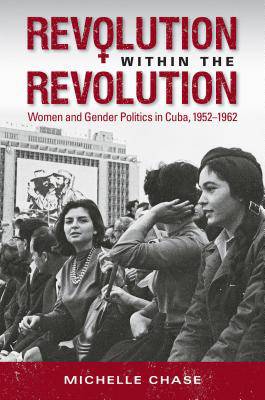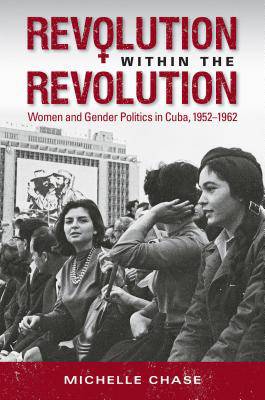
- Afhalen na 1 uur in een winkel met voorraad
- Gratis thuislevering in België vanaf € 30
- Ruim aanbod met 7 miljoen producten
- Afhalen na 1 uur in een winkel met voorraad
- Gratis thuislevering in België vanaf € 30
- Ruim aanbod met 7 miljoen producten
Omschrijving
A handful of celebrated photographs show armed female Cuban insurgents alongside their compañeros in Cuba's remote mountains during the revolutionary struggle. However, the story of women's part in the struggle's success has only now received comprehensive consideration in Michelle Chase's history of women and gender politics in revolutionary Cuba. Restoring to history women's participation in the all-important urban insurrection, and resisting Fidel Castro's triumphant claim that women's emancipation was handed to them as a "revolution within the revolution," Chase's work demonstrates that women's activism and leadership was critical at every stage of the revolutionary process.
Tracing changes in political attitudes alongside evolving gender ideologies in the years leading up to the revolution, Chase describes how insurrectionists mobilized familiar gendered notions, such as masculine honor and maternal sacrifice, in ways that strengthened the coalition against Fulgencio Batista. But, after 1959, the mobilization of women and the societal transformations that brought more women and young people into the political process opened the revolutionary platform to increasingly urgent demands for women's rights. In many cases, Chase shows, the revolutionary government was simply formalizing popular initiatives already in motion on the ground thanks to women with a more radical vision of their rights.
Specificaties
Betrokkenen
- Auteur(s):
- Uitgeverij:
Inhoud
- Aantal bladzijden:
- 310
- Taal:
- Engels
- Reeks:
Eigenschappen
- Productcode (EAN):
- 9781469625003
- Verschijningsdatum:
- 30/11/2015
- Uitvoering:
- Paperback
- Formaat:
- Trade paperback (VS)
- Afmetingen:
- 155 mm x 231 mm
- Gewicht:
- 408 g

Alleen bij Standaard Boekhandel
Beoordelingen
We publiceren alleen reviews die voldoen aan de voorwaarden voor reviews. Bekijk onze voorwaarden voor reviews.









